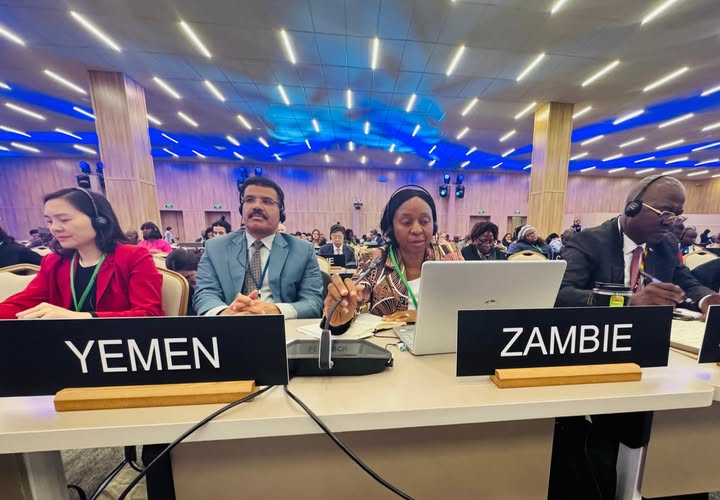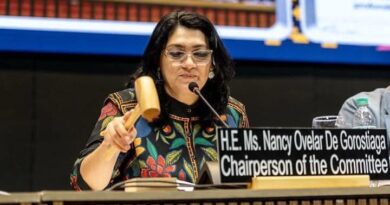Zambia Champions Global Recognition of Culture as Pillar of Sustainable Development at UNESCO Conference
Zambia has reaffirmed its strong commitment to elevating culture as a central pillar of global development, backing a landmark Resolution on the Proclamation of an International Decade of Culture for Sustainable Development at the 43rd UNESCO General Conference in Samarkand.
Speaking during the Culture Session, Director for Culture and Traditional Affairs, Mrs Bessie Chelemu, said the proposed Decade represents a transformative step towards ensuring culture is recognised not only as a standalone Sustainable Development Goal, but also as a global public good and an inherent human right.
Mrs Chelemu noted that Zambia is among the countries implementing the UNESCO Culture|2030 Indicators Initiative, a pioneering project that measures culture’s role in social and economic advancement. She expressed gratitude to the World Heritage Centre, represented by Deputy Director Madam Jyoti Hosagrahar, for its leadership in steering the initiative.
“This project is particularly relevant in the context of the proposed Decade, as it demonstrates that culture is not merely a sector, but the heartbeat of national development policies,” she said. “It cuts across heritage, creativity, and identity, serving as an enabler of social, economic, environmental, and institutional sustainability within UNESCO’s holistic framework of People, Planet, Prosperity, Peace, and Partnerships.”
She stressed that Zambia views culture as a vital component of sustainability—one that shapes values, guides behaviour, and influences humanity’s relationship with the environment.
According to Mrs Chelemu, the Culture|2030 Indicators form the measurement backbone for the proposed Decade, enabling governments to generate reliable data and evidence on culture’s contribution to development.
“There is no better moment than now to proclaim an International Decade of Culture for Sustainable Development,” she said. “The Decade and the Culture|2030 Indicators are mutually reinforcing—one provides the technical infrastructure and evidence base, while the other provides the political and strategic momentum needed to elevate culture worldwide.”
She concluded that systematic data collection in the cultural sphere creates a powerful blend of evidence-based policymaking, global commitment, and multi-sectoral collaboration—key to building a more culturally grounded and sustainable future.
The Culture Session is part of the 43rd UNESCO General Conference, taking place from 5th to 13th November 2025, under the theme “Culture for Sustainable Development.”



